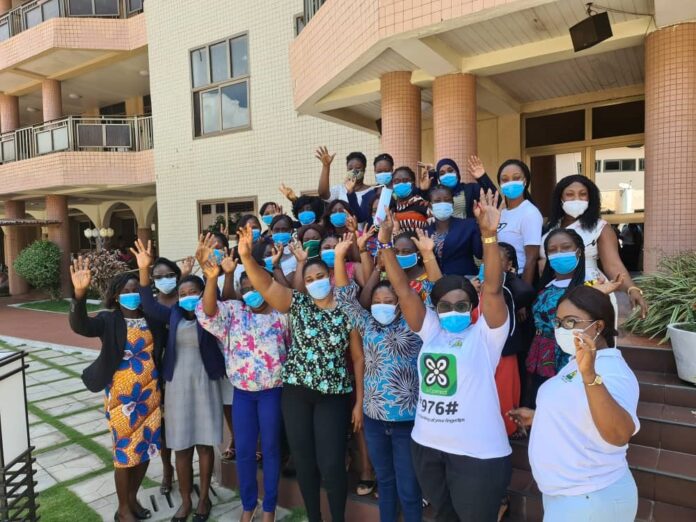
Female staff of rural and community banks across the country have been equipped with managerial and leadership capacity development skills.
The training programme’s primary objective is supporting women in the industry to take up managerial and leadership roles, and also advocate for leaders of institutions to involve women in decision-making.
This, according to experts, can enable women to take up leadership roles irrespective of their domestic responsibilities as wives and mothers.
Executive Director of the Association of Rural Banks-Ghana, Mrs. Comfort Owusu, in one of her opening remarks during a session reiterated the need for female staff to be mindful of development, particularly in their career as bankers.
According to her, the era of male dominance at the corporate ladder’s top level is over – and it is about time women got involved in managerial decisions if they have the leadership and managerial capabilities to do so.
She advised female staff to take such training very seriously, and also find other avenues in academia and practical development areas to sharpen their skills in their chosen profession.
It is a known fact that in the Ghanaian workforce, including the financial sector, the proportion of females in leadership positions is very small compared to that of their male counterparts.
Various studies have identified some constraints which prevent women from rising to top management positions in the workforce, and notable among these are cultural barriers and gender stereotyping.
People have the perception that women are unable to attain managerial positions because the majority of them lack required skills and experience.
Others also go through career breaks due to childbirth, lack of mentors or role-models, while others are unwilling to take up leadership responsibilities due to family obligations, lack of confidence among others – and the female staff in rural and community bank (RCBs) are no exception.
The Association of Rural Banks-Ghana (ARB) and ARB Apex Bank Limited identified this gender imbalance in the managerial positions of most rural and community banks as a major challenge that they have been trying to address.
To help address this challenge, the Association of Rural Banks-Ghana (ARB) requested GIZ’s Programme for Sustainable Economic Development (PSED) to provide capacity development training for lower- and middle-placed female staff of all rural banks in Ghana.
The training was conducted on a zonal basis in ten sessions put together by the Association of Rural Banks-Ghana and facilitated by CDC Consult Limited, and sponsored by GIZ.









